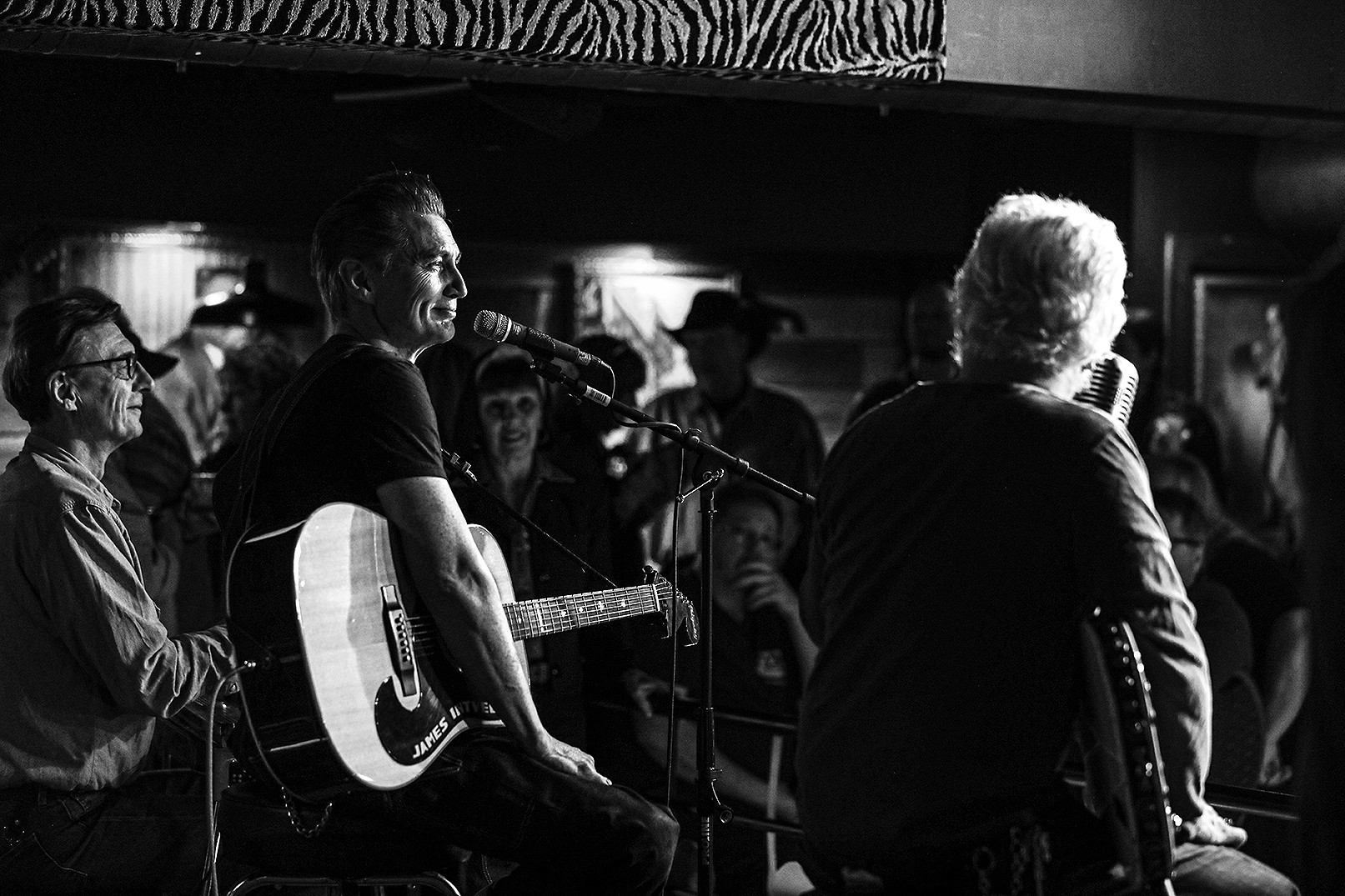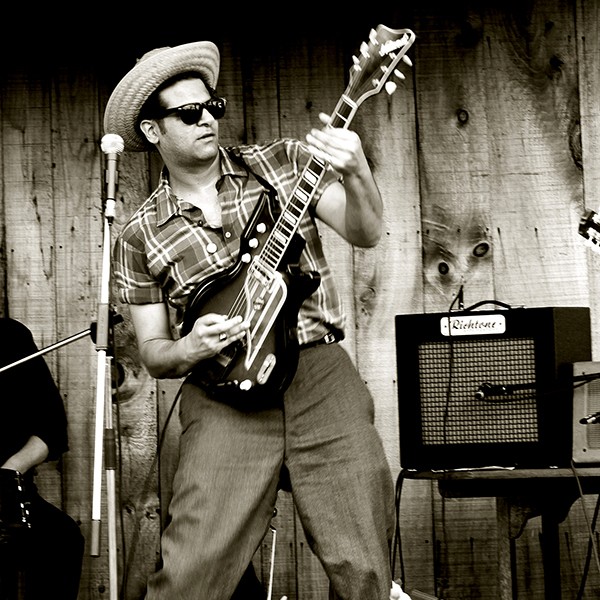 Jamie Harmon
Jamie Harmon
James Intveld joined Dale Watson and band during the Saturday afternoon show.
The Ameripolitan Music Awards celebrated its seventh annual ceremony on Monday, capping a weekend of shows and activities that included the grand reopening of The World Famous Hernando’s Hide-A-Way, now graced with a new historical marker. None other than Tanya Tucker made a surprise appearance at Hernando’s, where she sang “Help Me Make It Through the Night” and “I’ll Fly Away,” backed by Dale Watson and His Lone Stars, with guest pianist Jason D. Williams.
At the awards ceremony, hosted by Big Sandy (of Big Sandy and His Fly-Rite Boys), guitar pioneer Duane Eddy received the Master Award, and drummer J.M. Van Eaton (who played on Sun Records tracks by Johnny Cash, Conway Twitty, Roy Orbison, Jerry Lee Lewis, and Billy Lee Riley) received the Founder of the Sound Award from Jerry Phillips (son of Sam Phillips). Phillips poignantly said, “If J.M. Van Eaton hadn’t played on all those records, I’m not sure my father would have had the success he had.”
In another Memphis-related development, Goner Records recording artist Bloodshot Bill won the award for Best Rockabilly Male. Here he is playing bass and singing “Gone, Gone, Gone” with his fellow nominees:
When Ameripolitan Lets Its Hair Down: Unforgettable Images From Hernando’s
2020 Ameripolitan Music Award winners
Western swing Female – Georgia Parker
Western swing Male – Dave Stuckey
Western swing group – The Farmer & Adele
Honky Tonk Female – Sarah Vista
Honky Tonk Male – Charley Crockett
Honky Tonk Group – Country Side of Harmonica Sam
Master Award – Duane Eddy
Founder of the Sound – J.M. Van Eaton
Musician – Sean Mencher
Venue – Dukes Indy
Festival – Bristol Rhythm & Roots (Bristol, TN)
DJ – Eddie White (Cosmic Cowboy Café 2RRR 88.5FM, Sydney, Australia)
Rockabilly Female – Laura Palmer (of Laura Palmer & Screamin’ Rebel Angels)
Rockabilly Male – Bloodshot Bill
Rockabilly Group – The Lustre Kings
The end of the show served as an impromptu tribute to Carl Perkins, with the 2020 Rockabilly Male nominees, Shaun Young, Bloodshot Bill, Jittery Jack, and Eddie Clendening, all performing Perkins’ “Gone, Gone, Gone” together, followed by a grand finale with Watson, Tammi Savoy, Jim Heather, Jerry Phillips, Jittery Jeff, Dave Stuckey, Nick 13, Laura Palmer, and more singing Perkins’ “Boppin’ the Blues.” [slideshow-1]

